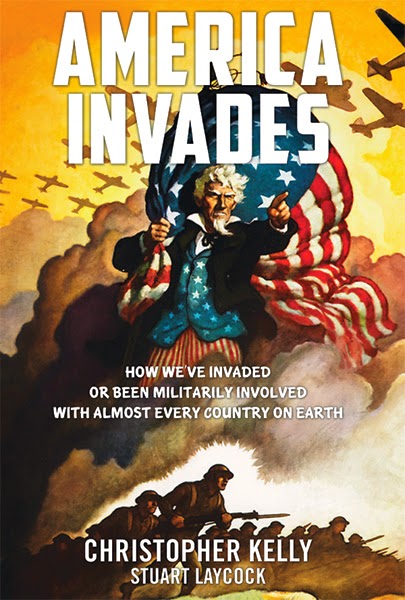 |
| Founders of the "Special Relationship" |
There is a strong strain of isolationism in the USA. It had a noble start with George Washington who counselled his countrymen to eschew "foreign entanglements." Years of catastrophic internecine European wars made the ears of those immigrants or their descendants receptive to this message. Isolationism was at this point arguably the best possible course for the fledgling republic. Survival was of paramount importance to the new nation.
When the nation grew stronger Monroe articulated his doctrine that the old world should stay out of the new world. During the American civil war the US was unable to enforce the Monroe doctrine and Napoleon III was able to attempt to impose a French imperial outpost in Mexico with disastrous results. The Monroe doctrine, in a sense, extended Washingtonian isolationism. Not only should the US stay our of European quarrels, but Europe should steer clear of the Americas as well. The new world would be allowed to grow and develop without interference from Europe and the new world would not take sides in european conflicts.
The 20th century, of course, brought an end to American isolationism. Wilson lobbied congress to declare war on the Kaiser's Germany in 1917. Isolationist sentiment helped keep the US out of the league of Nations. "Lucky" Lindbergh was a sincere advocate for American isolationism prior to Pearl Harbor and the American entry into WWII. Joseph Kennedy was a defeatist proponent of American isolationism. Churchill remarked of the US ambassador to the court of St. James that, "I thought daffodils were yellow until I met Joe Kennedy!" America first, last and always--to hell with the rest of the world!
The alliance between the US and the UK grew into the special relationship. NATO was formed to combat and and contain the communist menace during the cold war. The global burdens of the US grew though out the world.
Now in 2011 isolationism is sadly resurgent in the presidential campaign of Ron Paul who calls himself a conservative. He advocates non-intervention as the solution to our foreign policy. How would non-intervention have worked out on Omaha beach? Would an isolationist administration have launched the Marshall plan that helped to rebuild Europe from the ashes of WWII? In the 1980's a hypothetical President Paul would have asked the Soviets to "keep up that wall!" In the 1990's Saddam would have been allowed to remain in Kuwait.
In the "good old days" US foreign policy questions "ended and the ocean shore." Both parties supported the ultimate victory of Freedom in the cold war. Both parties supported NATO's creation. JFK eloquently called on Americans to "bear any burden, to pay any price." In Vietnam, however, the price turned out to be too high, the burden too heavy.
Now, however, unscrupulous politicians buy into the typical anti-American propaganda that US policies are exclusively to blame for our alleged unpopularity in the world. If only America would retreat from its engagement with the world all would be well. If only we could afford to bury our heads deeply in the sand. The hard truth is that there is just not enough sand in today's interconnected and interdependent world!























